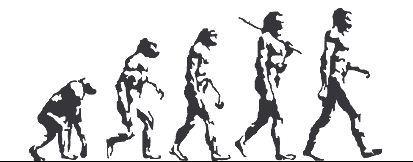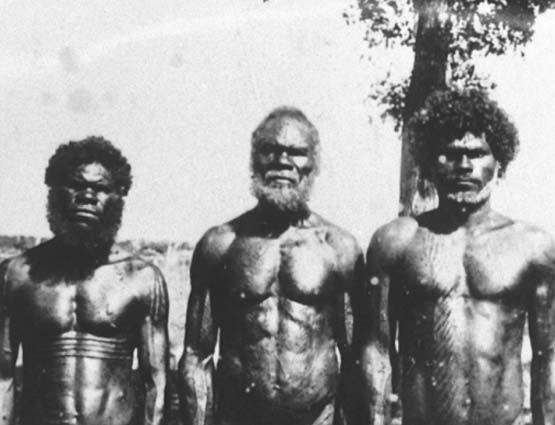Ever since
I ‘converted’ to the Paleo lifestyle I have received an astronomical amount of
questions about it, which is fine and I enjoy answering them; however, the
questions I do not appreciate are the ones where people are asking me what they
should do to lose weight or drop a quick 10lbs for beach season. Now, I
understand that weight-loss is most people’s main motivation for a dietary
change, and even though the Paleo diet WILL aid in weight-loss I am always
reluctant to give the summer season pound shedders advice, and here is why:
- As someone
who was overweight and even obese for a certain time I can sympathize with
people who want to lose that excess body fat, I truly can. However, my motivation for making a change
this drastic in my life was much less superficial than I just want to be
‘skinny’. I saw my eating habits, I saw
my exercise (or lack of exercise), I saw my weight and my blood test results
and I was appalled with myself. Yes, I
wasn’t happy with how my body looked, but I was far more dissatisfied with how
I was treating it. Sugar, complex carbs,
soda, GMOs, MSGs, gluten, and artificial/chemical shit storms everywhere. I made the change to a Paleo lifestyle to not
just look good naked (which is awesome btw) but also to save my life (and
subsequently your life as well). I looked at
myself in the mirror and realized that I was breaking and beating up my
vehicle, I was not giving it what it needs and I was treating it horribly, I
realized that my body is the vehicle I use to go through this craziness we call
life. I made a conscious choice to fuel
and treat my body the way it was supposed to be treated because I realized that
I am not a suboptimal person but I found myself becoming that way and it
frightened me. Due to this ‘self
frightening’ if you will, I chose to look at myself objectively; I am smart,
athletic and driven, so why am I treating myself like I am anything but that? I
wanted to be optimized, in not only my physical appearance but in my mind, body
and soul.
- The Paleo diet isn’t a fad diet, nor is it a way to lose the quick pounds (even though you’ll lose excess fat fast). It is a diet that recognized the entire BS surrounding us nowadays when it comes to nutrition. It uses logic and science to not only prove its philosophies but also expose the fake ones.


-Low-calorie/0-calorie, Sugar free, No Fat, Diet soda, and the countless other products shoved in the faces of aspiring weight-losers does nothing but confuse and distort most consumers views of what is and what is not healthy (I mean you should see the looks I get when I tell people I am on a high-fat, high-protein diet). These misleading ‘diet trends’ serve not the consumer but the corporations who make these products, the pharmaceutical companies who make the drugs to combat the illness brought about by these foods, and even the government who subsidize the grain and corn industries (that’s why the standard food pyramid is a JOKE). These are businesses out to make $$$$$$$. They are not looking out for your health, they are looking out for their own interests, as well as the interests of their shareholders.
- Here it is
plain and simple, CALORITIC RESTRICTION WILL HELP YOU LOSE WEIGHT (see laws of
thermodynamics). If you eat fewer
calories than you use you’ll lose weight, it really is that simple. If you eat
1600-1800 calories of Pop-tarts you will in fact lose weight, however, do you
think you will be healthy? Do you think your body will appreciate crappy food?
What about your blood sugar? Hormones? Body fat? Body composition? Along with
the lack of nutritional value many low-calorie/high carb diets just happens to
have a huge host of problems to go along with them, things like: eating disorders,
hunger, obsessive behavior, neurotic label reading and a plethora of other
serious problems.
 - The issue of people looking to ONLY lose weight
is a serious issue in my opinion. It has
caused a mass of health problems and misinformation because more people are
focused on counting calories rather than counting chemicals; to many people are
worried about counting calories rather than MAKING CALORIES COUNT. That crazy coffee I am always talking about:
you know, the coffee with grass-fed butter and coconut oil? Well, that great,
healthy, fat burning cup of epic has roughly 200-250 calories in it. Those calories are the last thing on my mind,
what I am thinking about is nutrition, the nutrients, and the benefits that are
in that warm cup of healthy fat.
- The issue of people looking to ONLY lose weight
is a serious issue in my opinion. It has
caused a mass of health problems and misinformation because more people are
focused on counting calories rather than counting chemicals; to many people are
worried about counting calories rather than MAKING CALORIES COUNT. That crazy coffee I am always talking about:
you know, the coffee with grass-fed butter and coconut oil? Well, that great,
healthy, fat burning cup of epic has roughly 200-250 calories in it. Those calories are the last thing on my mind,
what I am thinking about is nutrition, the nutrients, and the benefits that are
in that warm cup of healthy fat.
- I am a person who has tried their best to do
their research. I take very few things
at face value, I do my research I teach myself, I critically analyze and I draw
conclusions. The Paleo diet not only was
backed by its logic but the science as well.
It is not a weight-loss diet but rather a lifestyle change. It was not there to help us be thin or look sexy;
those are just added benefits to a healthy, clean lifestyle. The Paleo diet is a way to treat diseases like diabetes, Crohn’s disease, cholesterol, autoimmunity disorders, leaky guy,
high triglycerides, heart disease, Alzheimer’s, Parkinson’s, high or low blood
sugar and almost any health problem you can imagine. It is for people who want to lead healthy,
active and optimized lifestyles not for someone looking to lose a quick 10lbs
for the beach.
- This is something I can promise the person who
is overweight and struggling with calorie counting or food intake restrictions (even
you weight watchers or food plan diet people); YOU WILL LOSE MORE WEIGHT, BE
FAR HEALTHIER, BE HAPPIER AND STRONGER IF YOU SIMPLY EAT REAL, NUTRIENT DENSE
FOOD. Real food will make
excess weight fall off your body. Real
food helps regulate insulin, cortisol, cholesterol, and blood pressure and
literally everything that biologically occurs in these chemical sacks we call
bodies. Real food will help to level out
the proper amount of hormones in our blood as well as help our body recover faster
and heal itself. Restricting calories
not only has a huge amount of negative mental side effects but biological ones
as well. It can lead to hormone
imbalances and deficiencies, greater insulin resistance, weakness and fatigue,
lack of energy, mental fog, hunger, increase in cortisol, increase in
inflammation etc.
Here are some simple tips to losing weight healthily,
properly and intelligently:
1. Don’t count calories; make calories count.
Not all calories are created equal. Let’s just think about the simple comparison
of a 100-calorie Oreo packet vs a 130 calorie tbsp of Coconut Oil. Which do you think is healthier and has more
nutrients?
2. Don’t eat until you’re full; eat until
you’re satisfied. You know people say
it takes 20min for your body to tell you you’re not hungry anymore? That’s a
lie. Eat a plate of dense nutrients both
micro and macro and trust me, you’ll feel satisfied right away.
3. Drink more water! And only drink water! Not even coconut water! You will get your sugar
from food
4. Exercise Early It seems that the best weight-loss results stem from early morning
workouts, due to our bodies natural biological processes of fat burning in
sleep and in the morning (to much science to explain now)
5. Get PLENTY of sleep. Sleep is a major component
of good health. It contributes to digestion, healing, recovery, mental health,
and pretty much every biological process you can imagine and is a huge
component to health and weight-loss.






